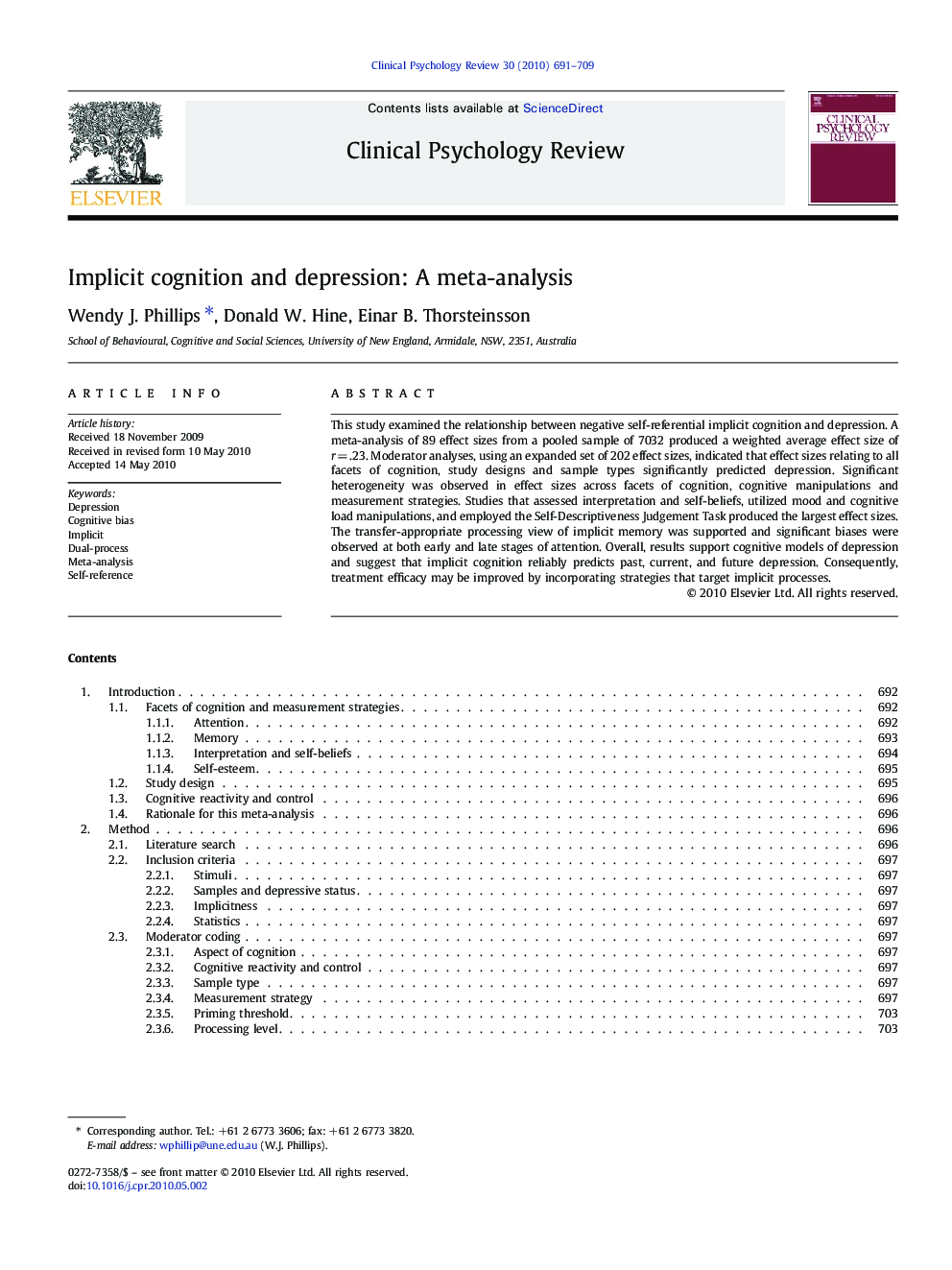| Article ID | Journal | Published Year | Pages | File Type |
|---|---|---|---|---|
| 903881 | Clinical Psychology Review | 2010 | 19 Pages |
This study examined the relationship between negative self-referential implicit cognition and depression. A meta-analysis of 89 effect sizes from a pooled sample of 7032 produced a weighted average effect size of r = .23. Moderator analyses, using an expanded set of 202 effect sizes, indicated that effect sizes relating to all facets of cognition, study designs and sample types significantly predicted depression. Significant heterogeneity was observed in effect sizes across facets of cognition, cognitive manipulations and measurement strategies. Studies that assessed interpretation and self-beliefs, utilized mood and cognitive load manipulations, and employed the Self-Descriptiveness Judgement Task produced the largest effect sizes. The transfer-appropriate processing view of implicit memory was supported and significant biases were observed at both early and late stages of attention. Overall, results support cognitive models of depression and suggest that implicit cognition reliably predicts past, current, and future depression. Consequently, treatment efficacy may be improved by incorporating strategies that target implicit processes.
